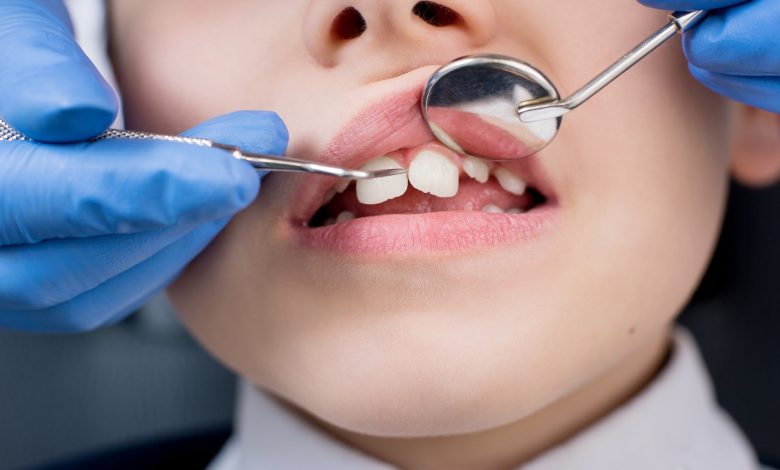
Scheduling wisdom teeth removal can be stressful, especially if you’re not sure what to expect from the process and how to take care of yourself after wisdom teeth removal . You might be wondering if you’ll feel any pain during the surgery, or if it will hurt when they remove your stitches afterward. In this article, we explain what you should expect from your wisdom teeth removal recovery and offer tips on how to heal more quickly.
Know the Risks
Wisdom teeth are present in about half of Americans, but only come in during adolescence. While doctors recommend removing wisdom teeth after eruption, or when they can be seen, many patients ignore their dentist’s advice until their wisdom teeth become infected or severely impacted. If you’re planning to have your wisdom teeth removed, know what to expect and take these precautions before surgery. Following wisdom tooth extraction aftercare is crucial to your recovery; failing to follow these tips could result in infections and complications with swallowing and eating that may lead to further issues down the road.
When you find yourself falling behind on your aftercare or not feeling well even days after having surgery, it’s time for a call with your doctor. If you are looking for a surgeon in Phoenix AZ , Dr. Mohammed El Hosseny at his office would be more than happy to answer any questions regarding wisdom teeth removal. Dr. Mohammed El Hosseny has built his reputation through providing wisdom teeth removal cost and being committed to providing individualized care tailored just for each patient while always making sure they feel safe and comfortable throughout every procedure. Reach out today! His staff will answer any questions you might have regarding wisdom teeth removal cost, scheduling an appointment or anything else related to your health!
Eat Soft Foods
After your wisdom teeth are removed, you will have some swelling and inflammation in your mouth for a few days. You may want to try eating foods that are soft, like pasta with sauce or scrambled eggs. If you have difficulty chewing and swallowing solid foods, ask your dentist about frozen desserts or softened ice cream. The important thing is to keep yourself hydrated with lots of water.
Make sure you drink enough fluids so that you do not get dehydrated after your surgery, as dehydration can lead to infection and complications post-op. These complications could even necessitate an additional procedure to remove impacted wisdom teeth. This is why it’s important to follow proper wisdom tooth extraction aftercare, including staying well hydrated during recovery time. Your diet should consist mainly of soft foods in small portions at first, but you can gradually return to regular meals once you feel able to eat again without any discomfort. Even though our mouths are sore from wisdom tooth removal initially, it does not mean we cannot enjoy our favorite food immediately afterwards!
Hydrate, Hydrate, Hydrate
Just like every other surgery, you’ll need to drink plenty of water after wisdom teeth removal. Don’t forget to chew on some ice chips if it helps relieve your pain, too. Be sure to continue with your regular dose of ibuprofen or acetaminophen for pain relief as well. It can take anywhere from a few days to a few weeks for post-surgery swelling and soreness to subside.
Don’t Forget About Painkillers
Before you leave your dentist’s office, make sure to ask about painkillers and to get a prescription. Because wisdom teeth extraction is performed under general anesthesia, patients are often prescribed an opioid-based painkiller and may need it for up to three days after surgery. This can be anything from a common over-the-counter painkiller like Tylenol (which is safe for those who use antidepressants) to Vicodin or Oxycontin; ask your dentist which he or she prefers for you. While most people do not experience intense pain after wisdom teeth removal—because of both general anesthesia and postoperative drugs—be sure to follow up with your dentist if you have any problems swallowing after surgery.
Take it Easy
The first few days after wisdom teeth removal can be difficult, so give yourself time to recover. The swelling, inflammation and discomfort in your mouth will ease up a bit within a week or two. However, it’s not uncommon for patients to experience soreness or mild pain for months after their wisdom tooth extraction aftercare are removed; many dentists recommend taking an over-the-counter pain reliever like acetaminophen (Tylenol) or ibuprofen (Advil) as needed. Your dentist may also suggest that you avoid eating hard foods until you feel 100 percent again. At first, try something softer—you might even want to opt for soft foods exclusively for a day or two.
Follow Up with Your Dentist
Now that your wisdom teeth are out, it’s important to follow up with your dentist. During post-extraction care, they can make sure there aren’t any complications. Or lingering problems—they may also prescribe medications or recommend other steps to take as you recover. It’s in your best interest to take their advice seriously; wisdom teeth removal is a relatively minor procedure. But taking good care of yourself afterward is an important part of making sure it goes smoothly. Talk with your dentist about what precautions. You should take and how long you need to keep an eye. On things before calling back again for a checkup.